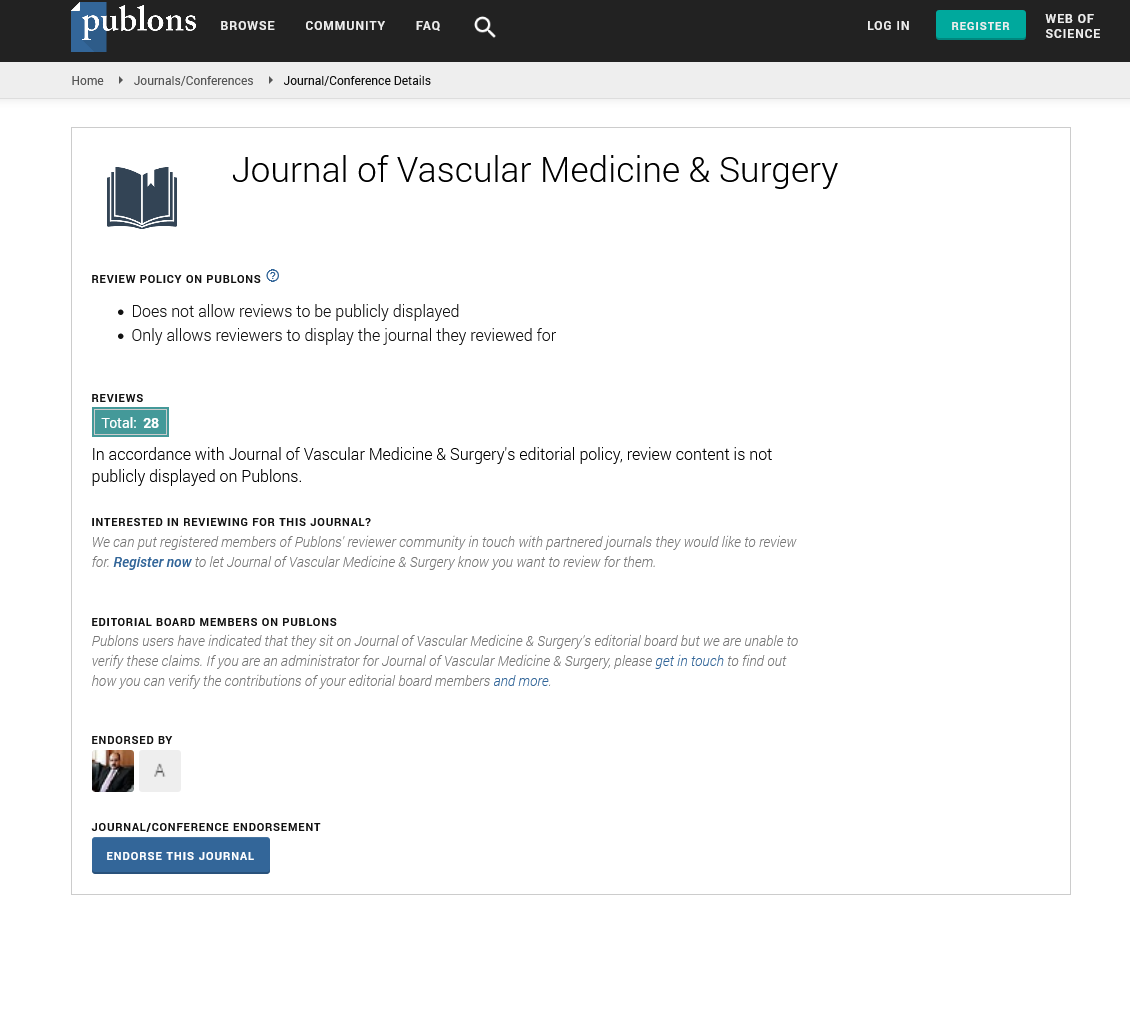Indexed In
- Open J Gate
- Academic Keys
- RefSeek
- Hamdard University
- EBSCO A-Z
- OCLC- WorldCat
- Publons
- Euro Pub
- Google Scholar
- SHERPA ROMEO
Useful Links
Share This Page
Journal Flyer

Open Access Journals
- Agri and Aquaculture
- Biochemistry
- Bioinformatics & Systems Biology
- Business & Management
- Chemistry
- Clinical Sciences
- Engineering
- Food & Nutrition
- General Science
- Genetics & Molecular Biology
- Immunology & Microbiology
- Medical Sciences
- Neuroscience & Psychology
- Nursing & Health Care
- Pharmaceutical Sciences
The new era of anticoagulation
World Congress on Vascular Diseases, Medicine & Surgeons Summit
October 24-25, 2016 Chicago, USA
Nedaa Skeik
Minneapolis Heart Institute® - Abbott Northwestern Hospital, USA
Scientific Tracks Abstracts: Vasc Med Surg
Abstract:
Despite starting as a rat poison, warfarin has done a good job in reducing thromboembolic events in in patients with atrial fibrillations, deep vein thrombosis, pulmonary embolism and mechanical heart valves. However, warfarin has multiple pitfalls affecting the initiation and adherence rate to this medication. Such pitfalls include requirement for bridging agents since it takes few days to reach therapeutic level in plasma, requirement for monitoring, frequent interactions with other medications and inter-patient variability in regard to dosing. The introduction of target specific anticoagulants (DOACs) to the market has created a paradigm shift in the management of patients with non-valvular atrial fibrillation and venous thromboembolism. Based on the current data, DOACs have shown good efficacy and safety profile in compare to warfarin. However, lack of specific antidote and not being available for patients with mechanical valve limits their use to some extent.
Biography :
Nedaa Skeik has completed his MD from Istanbul University, Internal Medicine Residency from New York Medical College, and Vascular Medicine Fellowship from Mayo Clinic, Rochester MN. He is currently a working at the Minneapolis Heart Institute® - Abbott Northwestern Hospital, USA. He has published more than 40 peer-review papers in reputed journals and has been serving as an Editorial Board Member of Annals of Vascular Surgery.
Email: nedaa.skeik@allina.com

